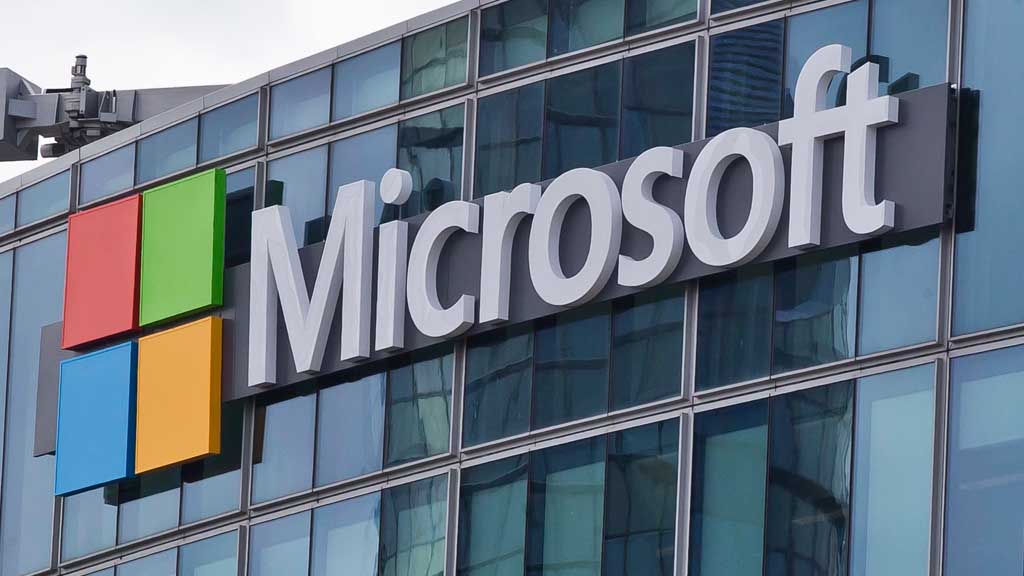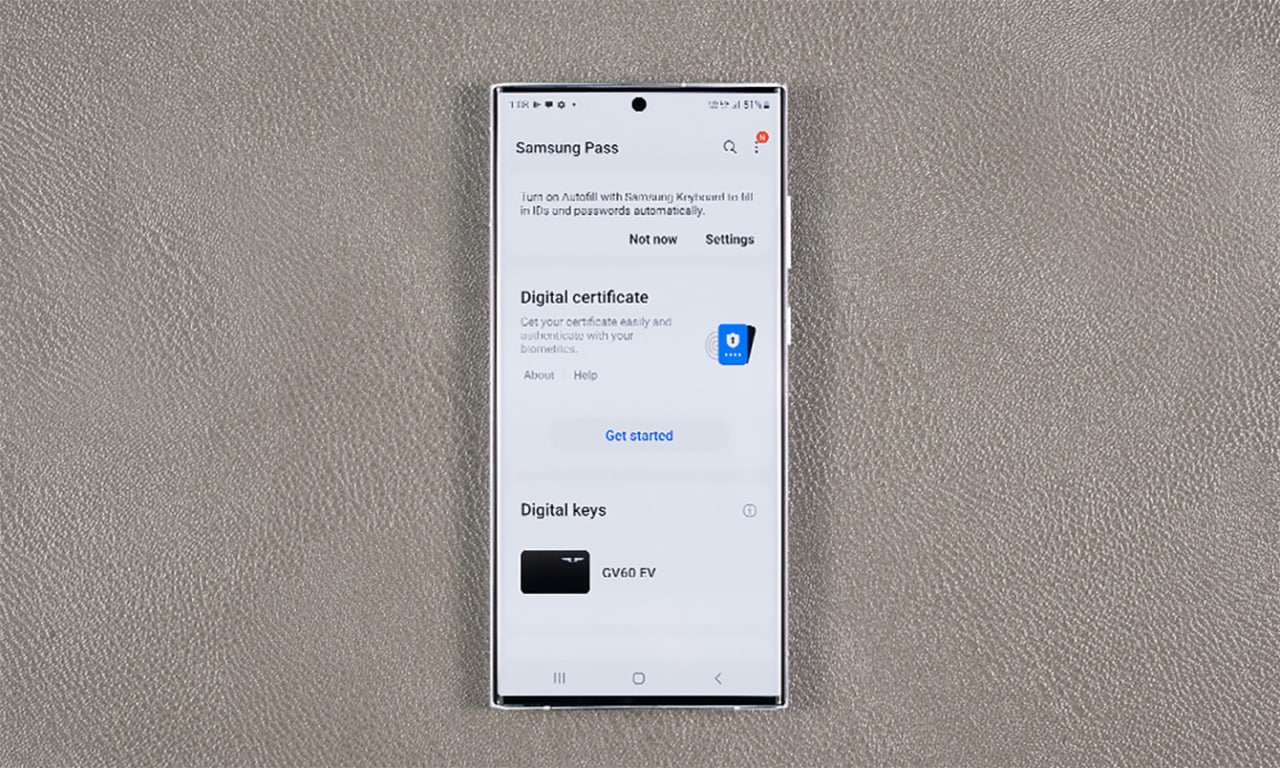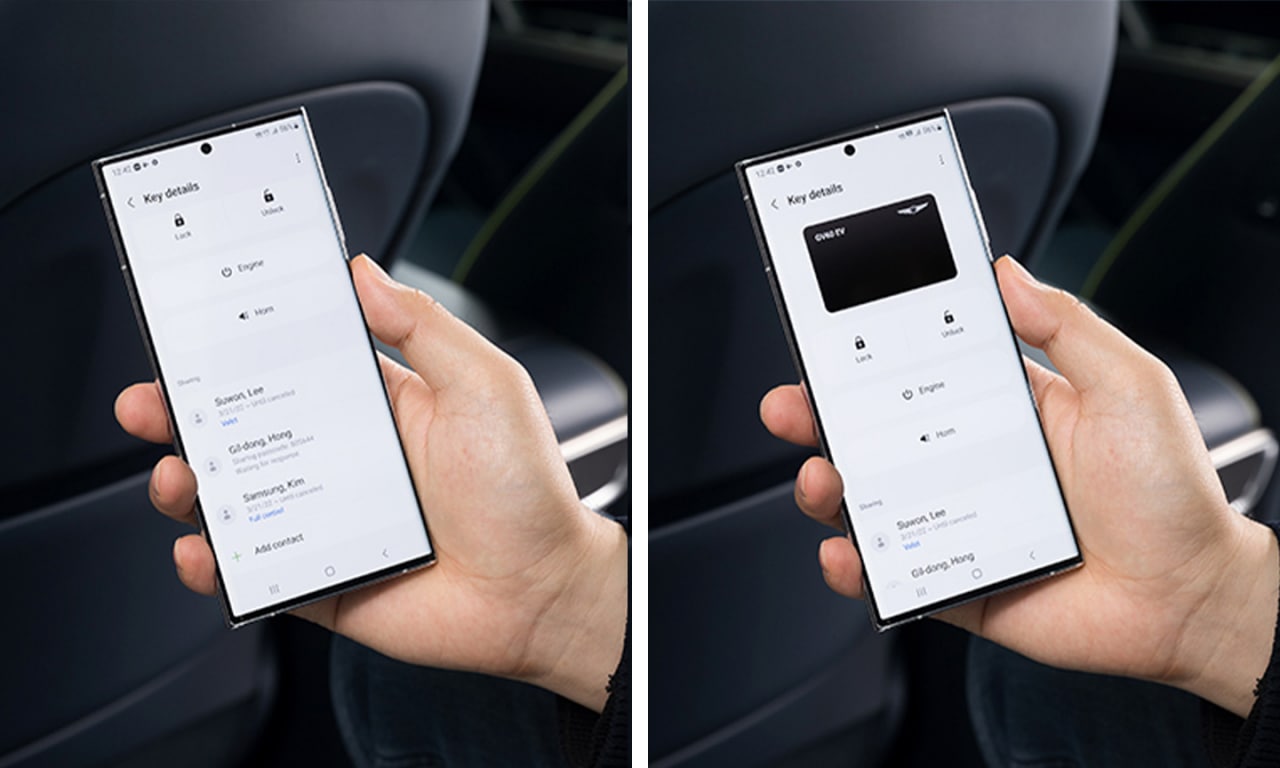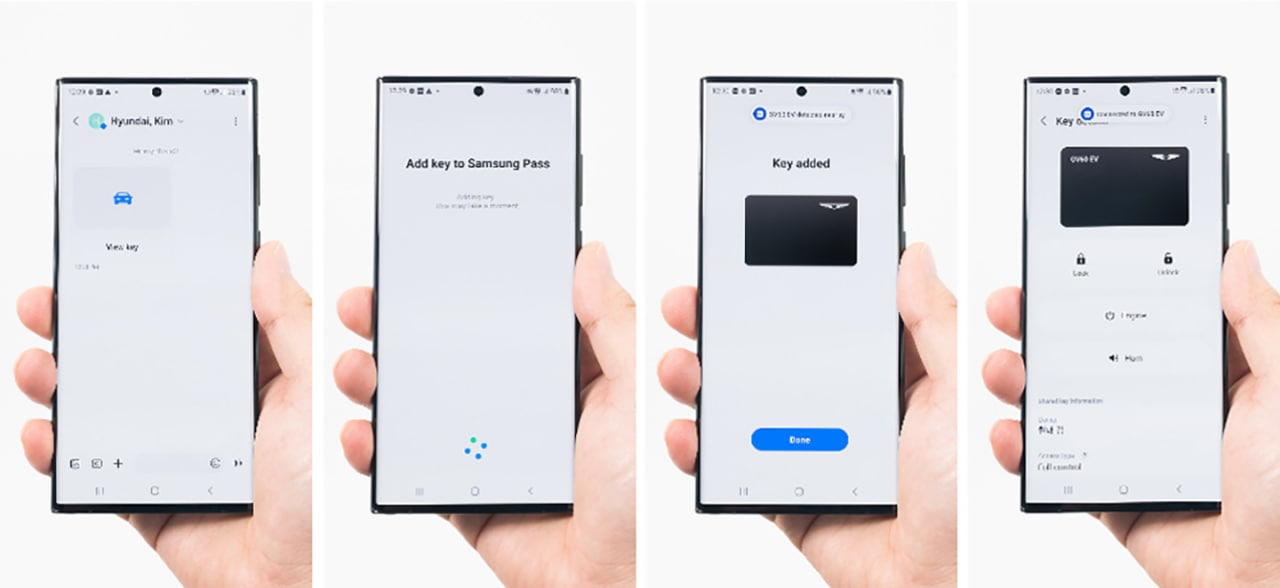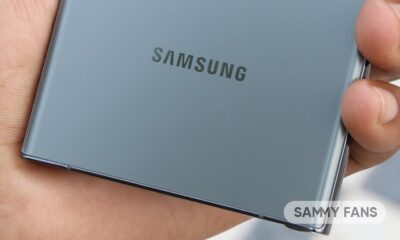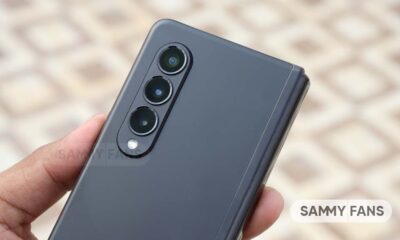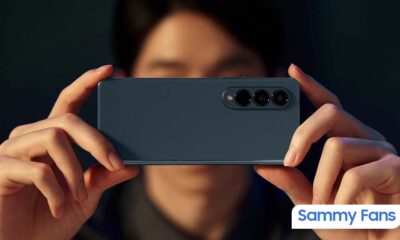Technology
Meet Samsung UWB-powered Digital Car Key!
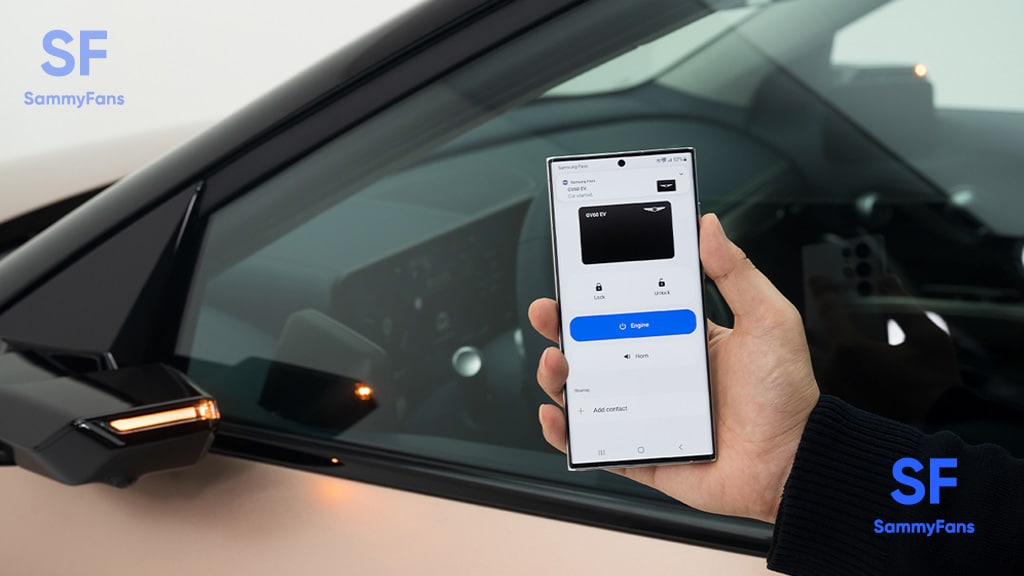
Earlier, Samsung announced that select flagship Galaxy devices will be able to act as a key of consumer’s cars. Today, Samsung and Hyundai announced that the GV60 Genesis electric vehicle will be the first to support ultra-wideband (UWB) digital keys available on Galaxy devices.
Samsung confirmed that the Galaxy S22+, Galaxy S22 Ultra, Galaxy Z Fold 3, Galaxy S21+, Galaxy S21 Ultra, Galaxy Z Fold 2, and Galaxy Note 20 Ultra will support a digital key powered by UWB technology.
DOWNLOAD SAMMY FANS APP
Using the Digital Key function, you can now unlock your car with your smartphone simply by walking up to it and lock it back up again by just touching the door sensor. Well, it’s time to meet such technology that transforms your smartphone into a digital key.
Join SammyFans on Telegram
UWB-powered Smart Car Key
Ultra-wideband, commonly known as UWB, is a wireless technology that lets your phone connect the directly communicate with your car. After registering a digital key, supported cars, such as GV60, can identify authorized Galaxy devices and unlock the doors as they approach.
All thanks to Samsung Pass
Samsung Pass, which is a system for storing digital signatures, IDs, and passwords, avails a Digital key feature to the Galaxy consumers. The company has confirmed that the service will also be available on the Samsung Wallet app, allowing users to securely store and manage digital IDs, boarding passes, vouchers, and credit cards.
How to use Samsung Digital Car Key
All you need to do is just install and open up the Genesis Connected Service app in the car. Once done, select “Vehicle” menu on the infotainment system, select the “Digital Key” menu on the screen, and “Register” on your Genesis Connected app. That’s it! Samsung Pass should start automatically registering the key in both apps.
Ways to unlock car
There are two ways to unlock your car using UWB; either you can open your car door by pressing the door handle while your phone is in your bag or pocket, or you can automatically unlock it simply by approaching the car with your smartphone.
Apart from these capabilities, there are also some helpful features that users can enjoy remotely on their Galaxy phone, like honking the horn or starting the car before entering the vehicle by pressing the engine button in Samsung Pass.
Digital Key sharing
You can choose to share your Digital Key with three of your contacts by selecting them from a list and clicking “Send Digital Key.” This will send a text message that will guide you through setting up a digital key on your Galaxy smartphone.
Once you’ve shared the key, the recipient can immediately use it by adding it to their Samsung Pass. You can even control how long the key is used and revoke access if necessary.
Users can rest assured that their digital key is safe, thanks to the high-quality security chipset that protects Samsung Pass. The app’s authentication process ensures you’re always in control of who can borrow your car key and when.
Samsung believes that all of our Galaxy users deserve the convenience of a more digital lifestyle. That’s why they continue to expand their core digital services through innovative partnerships with global automakers. The goal of Samsung is to increase the number of smartphones that support digital car key feature with UWB technology.
| Credits – Samsung |
News
Samsung launches two eco-friendly battery packs
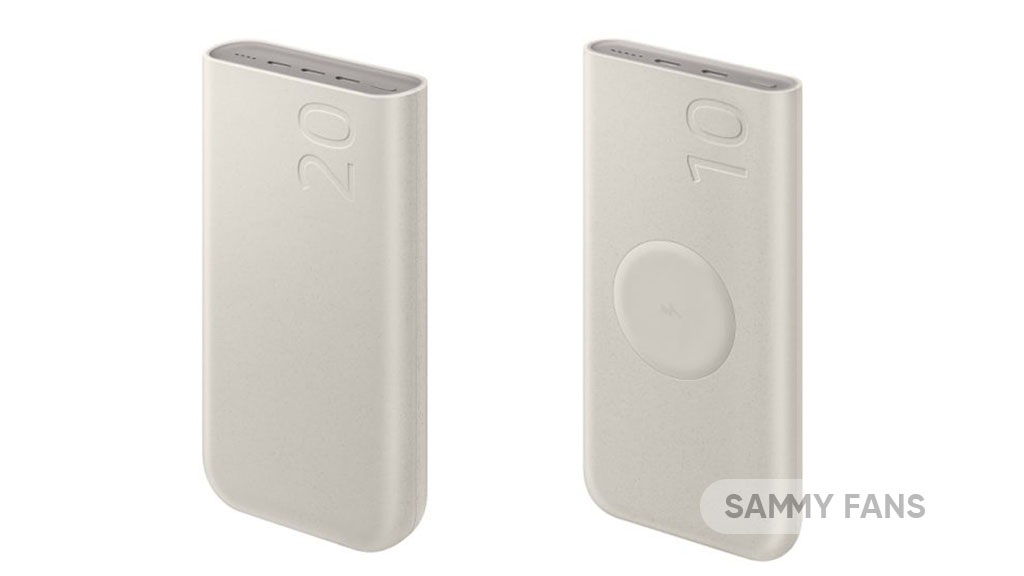
Samsung has unveiled two new battery packs with powerful performance using recycled materials. The launch, scheduled for the 19th, introduces the PD Battery Pack 20,000 mAh and the PD Wireless Charging Battery Pack 10,000 mAh. Both of these battery incorporate 30% UL-certified recycled plastic in their design, marking a stride in reducing carbon emissions.
The ‘PD Battery Pack 20,000 mAh’ offers a high capacity for charging, with a maximum output of 45W and three USB-C ports, allowing for simultaneously charging multiple devices. However, the actual charging speed may vary based on several factors, including the devices connected and charging conditions.

On the other hand, the ‘PD Wireless Charging Battery Pack 10,000 mAh’ provides the convenience of wireless charging, along with a wired charging capability of up to 25W. It comes with two USB-C ports, making it possible to charge up to three devices at once when combining wired and wireless charging.
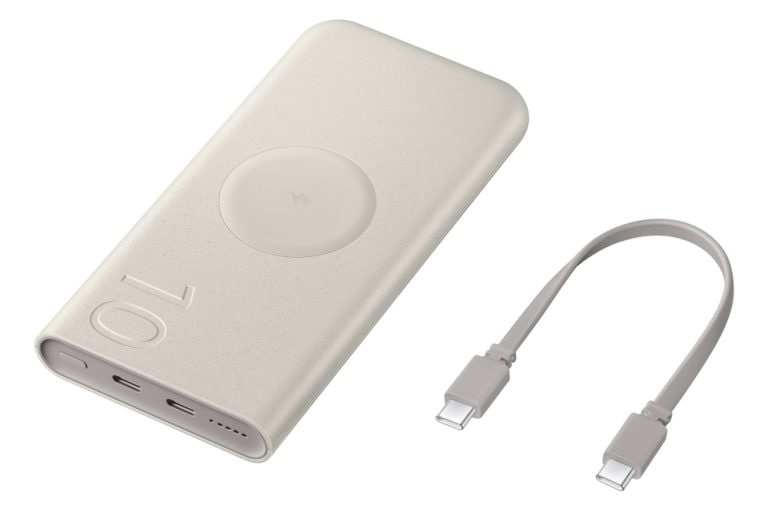
Both battery packs comply with the USB PD 3.0 standard, ensuring quick and efficient charging for Samsung Galaxy products and other compatible devices.
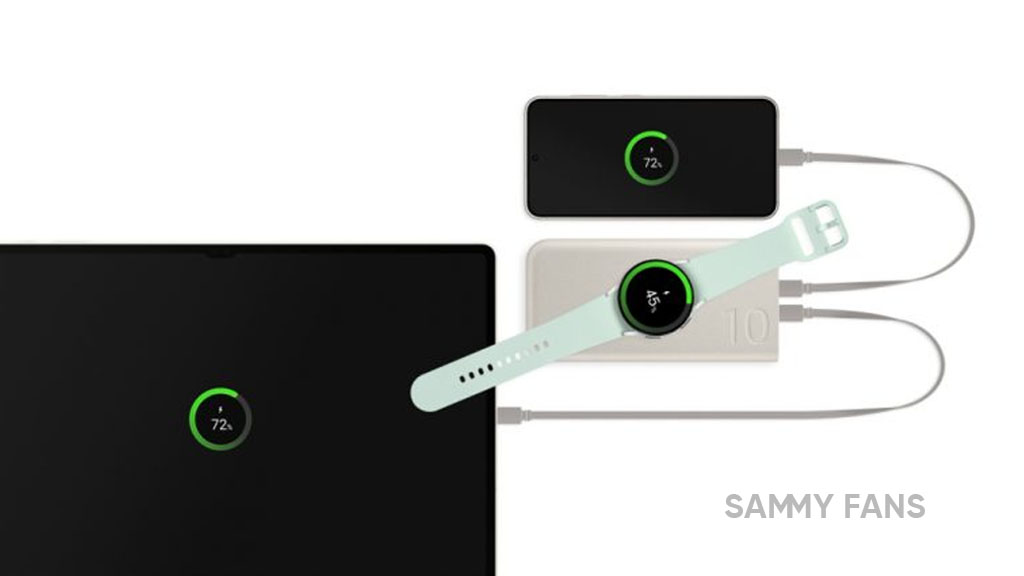
Technology
A new on-device AI memory is on the way: LPDDR6 standard will be finalized in Q3 2024
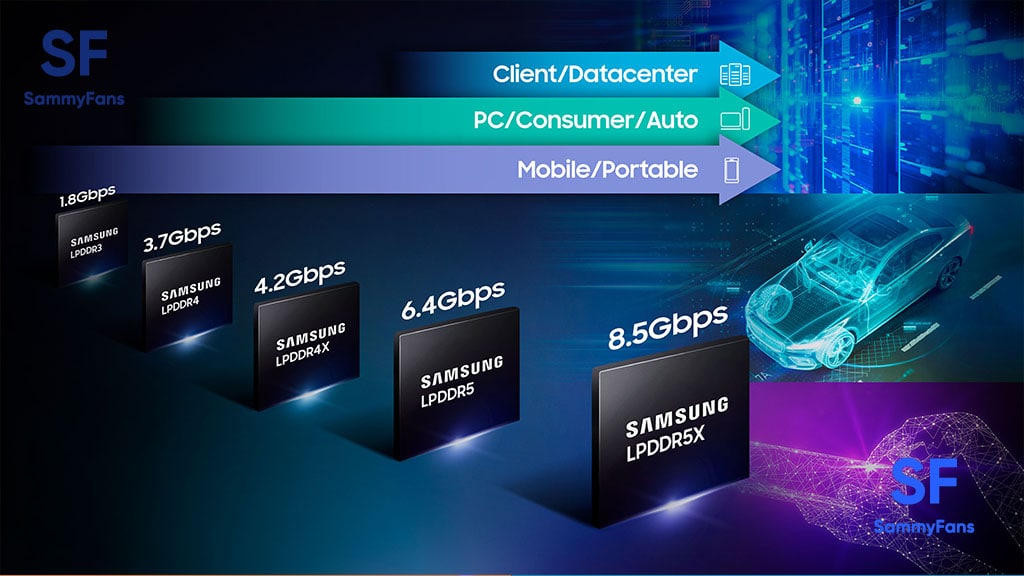
The LPDDR6 market is expected to bloom as early as next year, as the new on-device AI memory is on the way with the latest LPDDR6 standard finalization taking place in Q3 2024. If the standard is confirmed in the third quarter, LPDDR will secure a new standard for the first time in five years.
Going toward the details, the International Semiconductor Standard Organization (JEDEC) recently held discussions on the next-generation mobile RAM standard. The meeting proceeded with the finalization process to finalize the LPDDR6 standard.
An official in the semiconductor industry said,
- “We have held various discussions to confirm the LPDDR6 standard specification,” and it will be released in the third quarter of this year.”
To be mentioned, the JEDEC is a private organization that establishes semiconductor standards, that is, sizes and specifications, and more than 60 people from memory, system semiconductor, and design asset (IP) companies participated in this Lisbon meeting.
Follow our socials → Google News | Telegram | X/Twitter | Facebook | WhatsApp
Furthermore, the LPDDR6 standard will be established with a focus on improving data processing performance as the demand for on-device AI to perform large-scale AI calculations on smartphones, laptops, and tablet PCs is rapidly increasing. In addition, the power consumption standard will also be improved.
However, once the LPDDR6 standard is confirmed, major memory manufacturers such as Samsung Electronics and SK Hynix are expected to begin commercializing their products in earnest.

Technology
Microsoft unveils Copilot for Finance to simplify Excel and Outlook tasks

Microsoft has announced the launch of a new AI chatbot that can help finance workers with common tasks in Excel and Outlook. The Copilot for Finance is currently in public preview and will be available for purchase soon.
The Copilot for Finance is part of Microsoft’s vision to empower every department with a Copilot, a smart assistant that can generate natural-sounding text or other content with minimal human input.
Follow our socials → Google News | Telegram | X/Twitter | Facebook | WhatsApp
As per the information (via CNBC), the Copilot for Finance can perform functions such as variance analysis, data reconciliation, and collections process in Outlook, using data from SAP and Microsoft Dynamics 365. Microsoft plans to add more features to the Copilot for Finance later this year.
Microsoft’s corporate vice president Charles Lamanna said that the Copilot for Finance was developed with input from Microsoft’s finance department. He also said that the Japanese advertising agency Dentsu will be one of the first customers to use the Copilot for Finance.
